I had a great time talking to Paul Moskau. As will sometimes happen, we talked about a  great deal more than his baseball career. Here, for your amusement, are some of our “then and now” thoughts about the game. [Part 1 of our interview is here.]
great deal more than his baseball career. Here, for your amusement, are some of our “then and now” thoughts about the game. [Part 1 of our interview is here.]
One of the differences between the majors and the minors:
Paul Moskau I used to bring meal money home when I got called up. I don’t what it was back in the day; 15, 17 bucks or something. But I used to – well, there’s no cell phones, right? And then you run up a little bill. I called my wife at home. But I used to bring money home from a road trip. My first meal money with the Reds was more than I got my whole first month’s salary when I signed, two years before.
The Reds’ glory days, compared to the current Cincinnati organization:
JH The last straw for me was when they hired Tony Pérez as manager [1993] and then fired him after 44 games, so that Jim Bowden could hire Dave Johnson. I said, “you know, you gave the guy 44 fricking games. He was 20-24, and you fired him because you wanted Dave Johnson so bad.”
And I said, “okay, I’m done. That’s it. May they rot in hell forever.” I still hope they rot in hell forever, but I revere the Reds of the Sixties and Seventies.
PM I don’t know what happened to the front office. I mean, Greg [Riddoch] and us, we all went back to Cincinnati for a reunion, and we thought: there’s a bunch of us who played for the Reds; Greg was there with the Reds. We called them up about tickets, and they said, “Sure, but you have to — we’ll sell you a group of tickets, but you have to guarantee you’re going to buy like 25 or 30-something tickets” – buy, guaranteed.
And I was like, “Really? Really? That’s how you treat former players? Big-leaguers? Former manager? Big leaguers, former front-office people? That’s how you treat your own? You say you can do that, but you’ve gotta buy more tickets than you have tickets requested?” Holy shit!
JH Greg was telling me about that, and I said, “look, that’s the way it is now.” And I loved the Reds. I mean, loved the Reds. All those years I was in Texas and everything, I was a Reds guy.
PM I’ll tell you why. I think you held you head higher for being a Reds player. You really had something you had to live up to, after 1975 and 1976 [when the Reds won back-to-back World Series]. And they got the Kluszewskis. You got Marty Brennaman and Joe Nuxhall in the radio booth. I mean, you get all these wonderful human beings all over the place, and a great organization, and how they went about doing what they did to develop talent, and everything that they did.
It just seemed like, what the hell happened? You know, how do you just treat people like the – hell, Bench doesn’t get treated very well with them!
JH No. Maybe none of us realized at the time how special that was, and —
PM Yeah, I think you’re right.
JH And things don’t last forever. And it’s sad. I went to [Great American Ball Park] for a Giants series, and the place looks like a dump. And you think, “Man, how good Riverfront looked, and how well it was run, and things done right and on time. And now you’ve got this — just this joke.”
——————–
Today’s game, player attitudes, and lessons learned:
PM I just wish there’d be a little more attention paid to the fundamentals, and to the game. Because I think the guys in the minor leagues do it, right? The kids, I don’t know.
JH One can only hope. But without that stuff being visible, so that kids can come in and see that and watch the players work on and things, all they have to identify with now is strikeouts and home runs.
PM Yeah. And flipping the bat, and all the things that some of these guys do, that is really how it trickles down to kids. A lot of times when you get [to the big leagues], you don’t really realize how much of an influence you have on young kids who want to play the game.
JH I tell you, Paul, what cured me of that stuff, because I had such a bad temper when I played, was playing on those rock-hard fields in Texas in the summer. They’d get completely baked out, and I popped up one day and I yelled, “Shit!” real loud and slammed that aluminum bat down; it hit on an angle and it bounced back up and hit me right in the teeth.
PM Karma!
JH And it stunned me. And you know what? That stopped it, right there. Hit me in the teeth, knocked a couple teeth loose, and I thought, you know, that was really pretty damned stupid.
PMI had that happen to me in college. I was sitting on the bench and I wasn’t playing, my sophomore year on the varsity club. I was by a batting cage, and I had a bat in my hand, and I was just so pissed, because I just knew I wasn’t going to get to play.
We always thought about maybe playing professional baseball, and I thought I could just see it all kind of slipping away. I had an aluminum bat, took it and threw it against — I was going to throw it into the netting of a batting cage. Nobody was near me; nobody was around me.
And the next thing you know, I’m laying on the ground. The bat hit the pole somehow; I threw the fat end of the end of the bat against it. Threw it against the pole, and it bounced off. Hit me, like you, split my lip, knocked out two teeth. Last time I ever lost my temper.
JH Yeah. It’s funny how that —
PM It’s kind of sobering. Because nobody gets hurt except the guy doing the stupid act in the first place, right?
I’m bitching about these young guys, and do I really have a right? Because I wonder if the old-timers, when I got there, were bitching about the way we went about things. I don’t know.
JH When my dad was 64, I thought he was the biggest old fart in the world; I wonder what my kids think of me now!
PM What’s weird is that I know how old I am, but I don’t know how old I am.
And maybe that was the plan — playing a sport for a living for a while, and being with those kids I worked with for all those years at that school.
But I think playing on a team and being young and just having fun and loving life and getting old — there’s good days back then. I think everybody harkens back to the days — what was fun days — and there are so many of us.
I didn’t grow up in a ballpark, but a lot of people in the Midwest and the East, where there was baseball all around, there’s a lot of fond memories of family stuff and being a kid and being at a ballpark.
My kids grew up in a ballpark when they were little, and socially, they’re great with older people. And they get it, because they didn’t have that fear and they were just running around the ballpark and being kids. People were all around them, and there wasn’t that paranoia. Of course, it wasn’t as bad; you worry about your kids now. But being able to grow up in a ballpark, it’s pretty awesome, being able to be around that.
JH I could thoroughly believe it. And it’s a shame that we have to lament that, like it’s a bygone era.
PM I know, I know. And there’s so much money in the game that everybody should be just fat, dumb, and happy.
JH Instead of being cranky and miserable!
————————
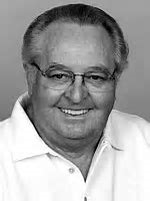 Bernie Stowe was, and is, a Reds legend. He started as a bat boy in 1947, and eventually became equipment manager in the late 1960s. He held that post for 40+ years, and the home clubhouse at Great American Ball Park is named for him.
Bernie Stowe was, and is, a Reds legend. He started as a bat boy in 1947, and eventually became equipment manager in the late 1960s. He held that post for 40+ years, and the home clubhouse at Great American Ball Park is named for him.
JH I worked for a place for a while, Koch Sporting Goods in downtown Cincinnati, and we did all the Reds and Bengals uniforms, for spring training and callups and stuff. And so I knew Bernie Stowe. What a character!
PM Every time I think of him, I smile. He was just the best.
JH Oh, I loved Bernie. In fact, I played softball with Mark Stowe, and I knew Rick a little bit. They’re still down there.
PM So they are still involved? They’re still running the show in the clubhouse?
JH Mark runs the visitors’ clubhouse and Rick runs the Reds’ clubhouse.
PM I’ll be damned!
JH What a great guy. I laugh every time I think of him.
PM He was just so good. He was so good with the players, and he just saw everything. And I can’t imagine the stories he must had about stuff that — I mean, there’s a lot of stuff you can’t talk about. But things —
JH He was as loyal as the day is long. But boy, if there was ever a guy who could have written a great, great book —
PM Yeah!
JH — it would have been him. Oh, my!
PM I had heard, and I’m pretty sure it’s true: in 1975 or 1976, when the team was voting World Series shares, they voted Bernie two shares, for him and the people in the clubhouse.
JH He got a full share himself and everybody else got a share to split up, is the way I understand how it went.
PM Right. They wanted to provide two full shares to Bernie and the clubhouse. I mean, that says an awful lot, I think, about that club — and about him.
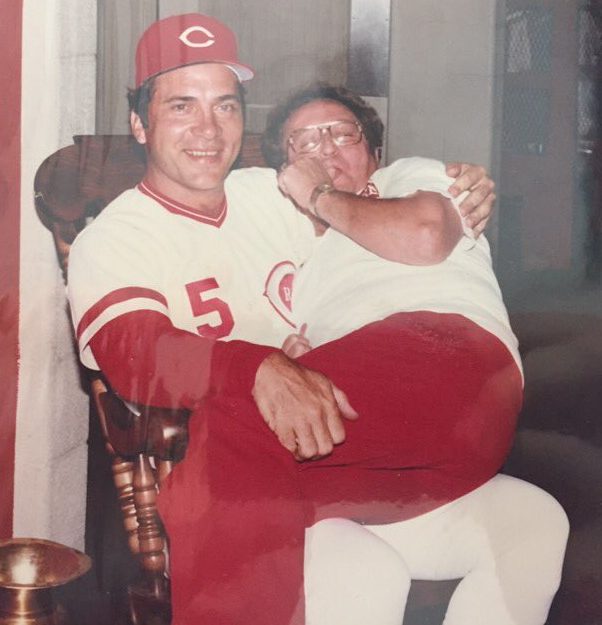
JH Even when he died, the players just went on and on about how good he was to them. And Bench said, “He’s the real Hall-of-Famer among all of us.” And he was just a great, great guy. He was so good to me.
PM He took care of people.
JH If I happened to mention to him that I was going to see the Reds on the road, he’d say, “well, look, come on up. Come to the clubhouse early, and bring a jersey with you. We’ll pretend we’re doing business. I’ll get you in the clubhouse, and I’ll get you tickets for all the games.” That’s just the way he was.
PM He never asked for anything, is my recollection of him.
JH No. He would call me in the afternoon when there was a trade, and he’d say, “Jim, you going to the game tonight?”
“Well, I wasn’t really thinking about -– “
“Well, listen, I’ll leave you a ticket at Will Call. We’re going to make a trade. You can’t tell anybody, but I got some jerseys for you to make up, and I need them tomorrow. So come on down to the game tonight.”
And I’d go to the clubhouse after the game, and he’d hand me a paper bag full of jerseys and say, “Okay, here’s the trade. Don’t tell anybody. We need this and this.”
PM He was the first guy to know. Those guys knew when somebody was going down, somebody was getting called up. I mean, all that ahead of time.
I’ll tell you a Bernie Stowe story:
So in spring training, see, we’re in the clubhouse, and camp’s getting ready to break. Guys are going to start getting sent down, that kind of stuff.
So Bernie’s walking through the clubhouse, and I think Seaver is with him. I’m nearby, and I don’t know if Bench was there or not.
Bernie walks by, holding a bat like he’s got a machine gun in his hand. He walks by a locker, he looks up at the name and goes brrrrrrt! And he’d go to another locker of some other kid who was going to get sent down or released, and go brrrrrt! Just keep going. It’s the funniest damn thing.
I guess he did it to me one time, but ah …
I’m sure clubhouse stuff is like that still.
———————-
Making connections in the game, and Marge Schott:
PM I guess when people stay in the game — that’s the thing about why I didn’t go back into it: married, got kids, need to make a living, didn’t want to go back being away from home, being gone, disrupting all of that for all that time. And once you’re out of the game back then, if you’re out of the game a couple years, you’re out of the game.
But then, when I got to be a general manager in AAA, it was amazing how many people got in touch with me!
JH You didn’t realize how many friends you had, until they needed something from you.
PM But I don’t blame anybody for asking if somebody, somewhere, might be of help, if there’s friends of yours, or guys looking for jobs or coaching or whatever with somebody. It’s kind of what people do. That’s what most guys do, right?
There’s a group of guys who are in the minor leagues, they’re managing and coaching and stuff. And somebody says, “if I get to the big leagues, I’m taking you; you get there, you take me.” Isn’t there a lot of that that goes on?
JH That’s how was it was working with Greg Riddoch — he was going to end up being GM of the Reds. He was being trained for that.
PM Yeah! Mr. Howsam.
JH Until Howsam met with Marge Schott and he said, “I can’t work for that woman. I’m sorry. I gotta go.” And I can identify with him because not only — I couldn’t stand her to begin with — then the company I was working for after I left Koch’s, we had to deal with her in business. And that was a day at the beach.
PM Was she nasty?
JH Oh, just brutal! I worked for a big screen-printing company, and we had a limited contract with the Reds, and she would call up people and scream at them at all hours of the day and night. She was just insane, and —
PM Was it her husband who had the car dealerships? It wasn’t her, was it?
JH Yeah. She inherited them.
PM She inherited a business and a ballclub?
JH No, she inherited the car dealerships. And then she kept his clothes hanging in the closet for 35 years.
PM Oh, Jesus!
JH Oh, God. It was amazing.
PM Did she sell the dealerships? Is that what she used to buy the — have enough money from the dealership to buy —
JH She got enough capital. She didn’t sell the car dealerships. At least not right away, because one of the things she did was, she made the scouts lease cars from her dealerships.
PM Oh, Jesus Christ. No kidding? Okay, great, Marge!
JH So she got the money to buy the club. How the hell did she ever get approved by MLB? That’s the amazing part.
The Angels, and Jimmie Reese:
PM Farm systems, when they’re run right and run well, they can be very productive for clubs. Plus, it gives kids a chance, once you get in the organization, if they know they’ll promote, that kind of keeps you motivated too, right? Instead of going out and buying a bunch of people.
JH Some clubs have been successful, at least in the short term, trying to [buy a pennant] — like Milwaukee is now. But look at all those years the Angels kept trying. Gene Autry bought everybody in the game, it seemed like, and he still couldn’t win.
PM Right. Well, that’s where Bobby Valentine — I think the year I went over, because Bobby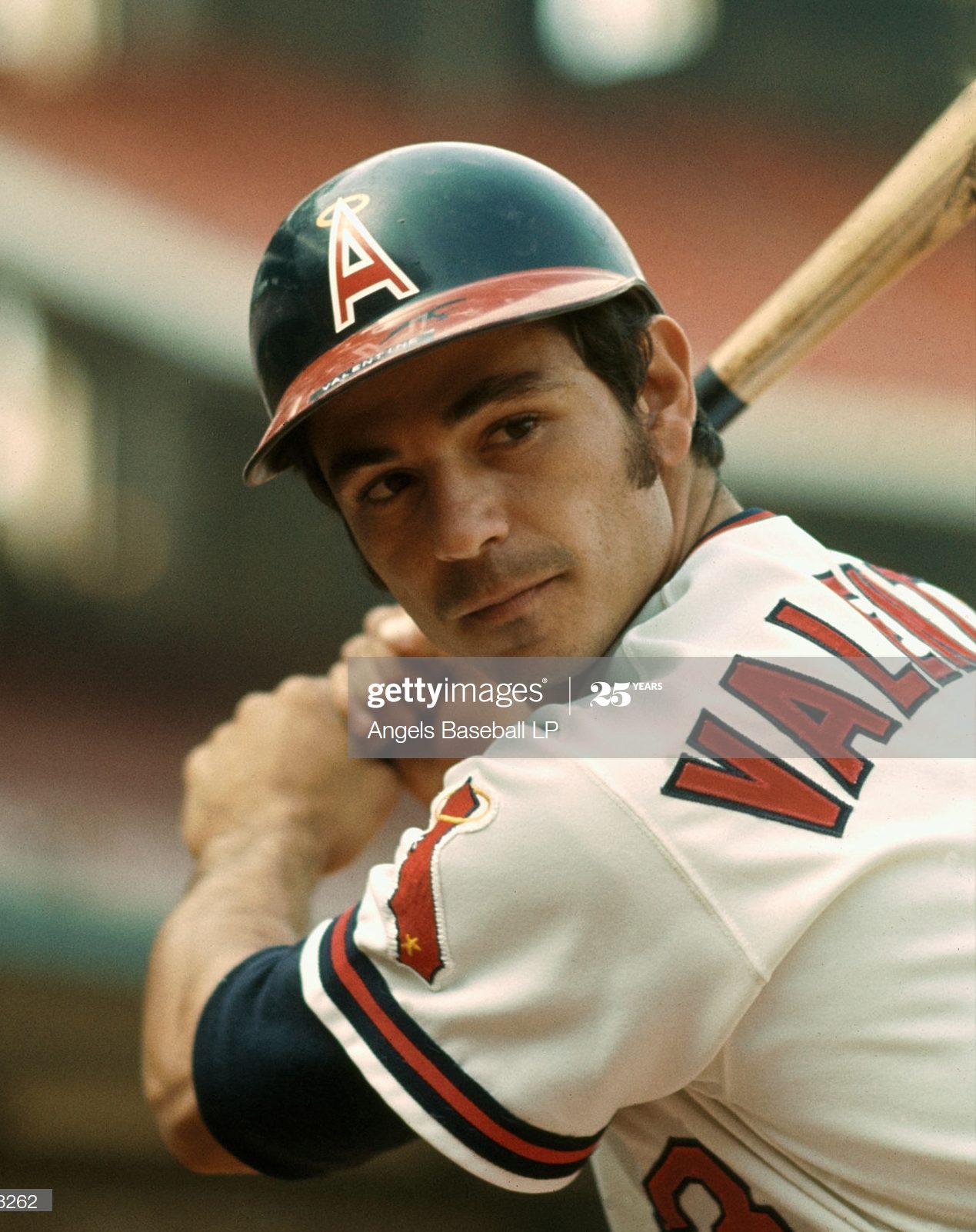 Winkles left and went to the Angels when he left Arizona State and I go over there and my parents knew somebody [who] was the assistant city manager for Anaheim, and we could get tickets. We’d go to ballgames over there, and Bobby Winkles let me come down one time and take BP and stuff.
Winkles left and went to the Angels when he left Arizona State and I go over there and my parents knew somebody [who] was the assistant city manager for Anaheim, and we could get tickets. We’d go to ballgames over there, and Bobby Winkles let me come down one time and take BP and stuff.
And Bobby Valentine — I don’t know if that was, if he did it that year, or the year before. It was sometime around then when he had that horrible – broke his leg. [In 1973, Valentine climbed the outfield fence to try to catch a home-run ball, caught his spikes in the fence, and snapped his lower leg as he fell.]
JH Oh God, I saw that. I saw that on TV live — his leg just snapped. Just brutal.
PM So I got to go work out. They have you throw in the bullpen, and I got to take a few swings.
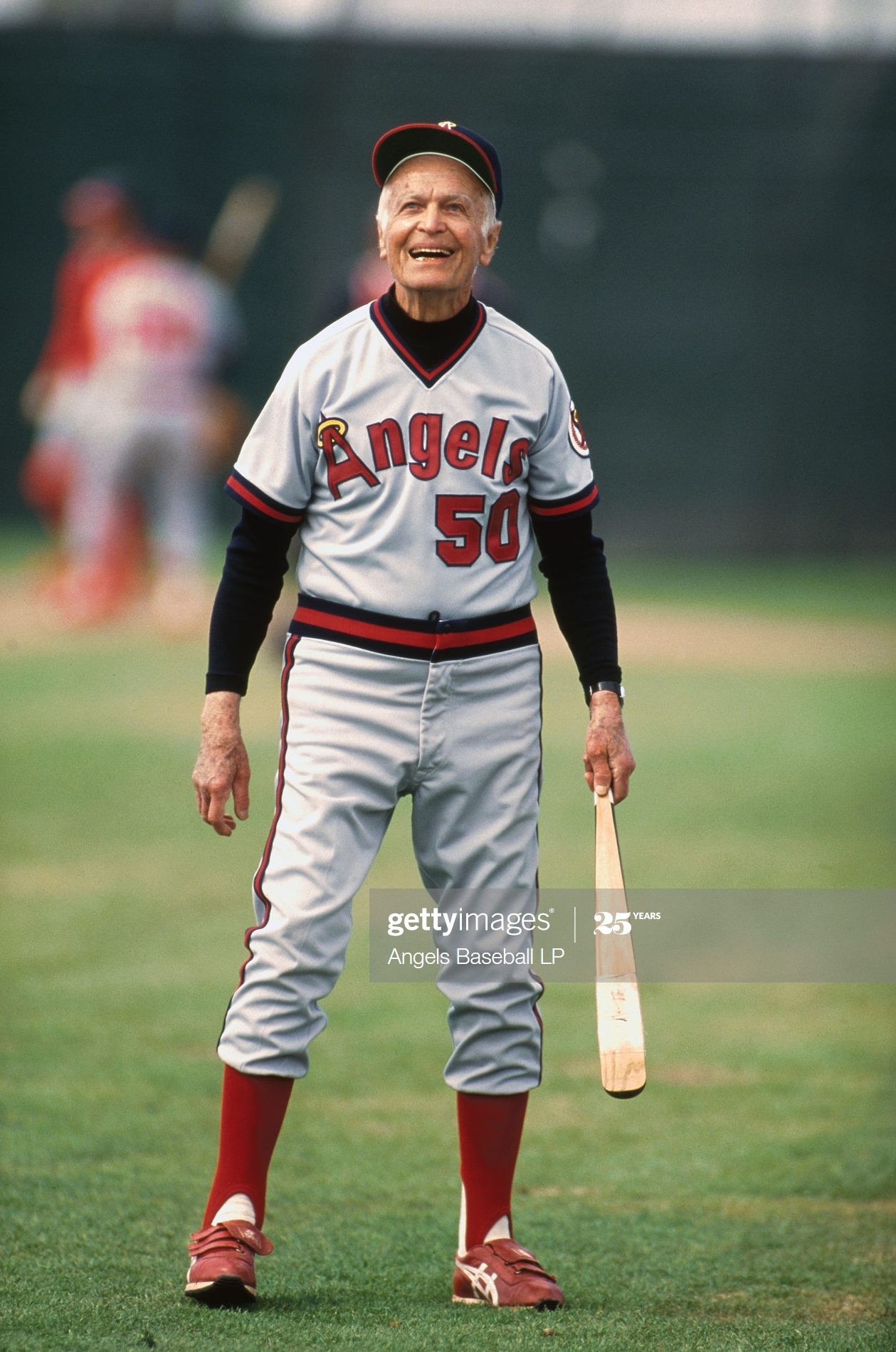
They had me running with the pitchers in the outfield, and that guy Jimmie Reese, who was Babe Ruth’s roommate? He had a flattened-out fungo — took the barrel and flattened it out — and he would just take a ball and he just tossed it up, and just little short little left-handed swing, almost like a golf swing. And he’d hit these sinking little balls out there, and then you’d just run and he’d just hit you in line as you were running your sprints. He just hit a ball to you, keep running in stride and catch it. Hell, he must’ve been in his eighties back then!
JH I used to see him when the Angels would come to Arlington Stadium. I used to watch him do that. It was pretty amazing.
PM Yeah, it was really — he wasn’t a young guy!
JH No, he was in his eighties, and he was always in long sleeves no matter how hot it was, and he’s out there just taking that bat with the flat side to it. And he just flipped those balls out there, and guys are just dying going after them, and he’s just back there laughing his ass off. [laughter]
PM Oh, I thought it was unbelievable. I mean, you know, he was Babe Ruth’s frickin’ roommate!
JH Imagine how Reese would be around the greens, with a wedge in his hand. It might be unbelievable. He could probably flip that thing within a foot of the hole every time.
PM Well, that damn swing he had, I can still see him doing it. I mean, if I just think about it, I can see him doing that. He’d be talking as he was hitting them. Guys are running trying to catch it. He’d just hit another one out there.
—————————–
Pregame then vs. pregame today:
PM So tell me, what happened to infield — pregame infield — in the big leagues?
JH It died.
PM Because?
JH Because too many players bitched about it, as I understand it.
PM Oh. Because they get too much — oh. And not the fact that none of them can throw anything but a gravity ball from the outfield, most of them. They don’t know where they throw. I guess that’s the old-school part of me. And when you’re around a bunch of Hall of Famers and they’re taking infield practice most all the time? Yeah, okay, so there’s a problem here? It was great for the fans. They loved seeing it. You know?
JH I was “that guy” who was always there the moment the gates opened, so that I could watch infield, so I could watch guys work, see if anybody took what they were working on pregame into the game. And now all that stuff has gone. And —
PM So do the guys even take ground balls in the infield during batting practice?
JH Not for the most part.
PM Oh, that’s great!
JH Maybe the coach will hit them balls back behind the screen or something, at first and third. But who in the hell is working on their throwing from the outfield? Let me give you a clue. No, nobody, no one. It’s just —
PM I just don’t understand it, because with repetition, that’s how you get better at something. What I always thought was, you worked on your deficiencies. You didn’t — God forbid you should not get a bunt down in the big leagues on the Reds, and have to come back to that dugout and see those guys, and face Sparky or something, if you can’t get up there and put a bunt down when you have to do a sacrifice bunt.
There’s guys now, I’ve heard, in the big leagues — there was a World Series I was watching, I don’t remember what year it was; it was the last couple of years or something. I was watching a game, and they talked about some guy who was up in a perfect situation to sacrifice bunt, and they said he probably won’t do it, because he’s never done it in his entire career. Major or minor leagues.
I tell you what else: I don’t know what else they do in spring training. If you’re not doing — I guess they still do PFP, right? Pitchers’ Fielding Practice.

JH Yes, they still do PFP in spring training.
PM Okay. But then once the season starts, most all of that stuff goes away. Right?
JH Right.
PM Well, you wouldn’t — we didn’t do PFP in the big leagues during the season, but I’m saying, like with the infield practice and the outfield guys getting fly balls hit to them while BP’s going on. Working on that, you take ground balls, and then you have a pregame infield. There were times when guys didn’t take it, but it wasn’t the team [not taking it]. Everybody took it. Most everybody, unless somebody just needs a blow and was tired or something.
JH Then they’d ask the rookie to take it for him.
PM But that’s okay. But for the vast majority of the time, those guys are taking it, and it’s like — don’t you think that helps in a game situation, where you know where to throw the ball, or know cutoffs and relays and all? I guess they just don’t do that.
And guys don’t mind striking out. I remember Concepcion one year struck out 100 when I was there [1980] and everybody was riding him so hard, the players and stuff. But that’s nothing anymore.
JH They don’t care about striking out anymore. Some guys are at 200 a year. Really? They used to get all over guys like Kingman for how many times he struck out, or Bobby Bonds. Now they would be just average.
PM Is that just because of the of the money and the players with the control and the power that the players have? Is that what causes this?
JH I can only guess that it is.
————————-
On-field etiquette:
PM When I got to the big leagues, they said, “whatever you do out there on the mound, don’t show up an umpire — especially when you’re a rookie, or the first year or so. Don’t do it!”
JH That plate or strike zone might get mighty small!
PM Yeah. I was pitching one time, I think it was against the Phillies. It wasn’t my first start, but I had somebody struck out; I threw a great pitch and he calls it ball four. I get out of the inning; I didn’t give up any runs. I’m walking off the mound, and the umpire behind the plate — without looking at me, and I’m not looking at him — he says, “Hey Paul, I blew that.” I said, “You know what? I don’t throw every pitch where I want to, either.” And we just kept moving. That was it.
JH Well, the guy was cool enough to admit he blew it.
PM Well, yeah. I’ve had the umpire on second base — I get out there and walking around, figuring what I’m going to do next. One old guy, he was around forever, and he’d say, “Just throw him a fastball down and away. He’s not going to hit it!” I look at him and I go, “What the hell do I do now?” “Ah, just throw him down-and-away! He won’t get to it!“
The cool stuff about the game is, there’s a lot of that stuff that goes on that people just don’t hear, see, or know, that’s happening. Especially between catchers and umpires. I think there’s a lot that goes on between them.
JH I think some of this kind of stuff is one of the things that Greg [Riddoch] is aiming at with [his memoirs]. He wants to bring out more of that kind of stuff — that kind of unusual or personal side.
PM It brings people to the game. I think it brings you into the game, and you’ll not be trading secrets. You’re not doing any — it’s not anything that’s inappropriate. You’re just about those interactions. Greg was great at it.
—————–
Jim Bouton and the Portland Mavericks, an independent team that the Eugene team played against:
JH Larry Dierker and I watched that Battered Bastards of Baseball documentary that’s on Netflix, that talked about the [Portland] Mavericks.
PM They were — talk about a bunch of old guys! Wow.
I saw that recently about Kurt Russell going on about his minor-league experience and his dad owning that ballclub and stuff. [Bing Russell] had a bar right outside the ballpark! If I remember correctly, I think he had a partnership in a part of a bar that was right outside left field.
Jim Bouton was in Portland, pitching for the Mavericks. The only thing I didn’t like about Jim: every freaking time he threw a pitch, his hat fell off.
JH Oh, that was his trademark.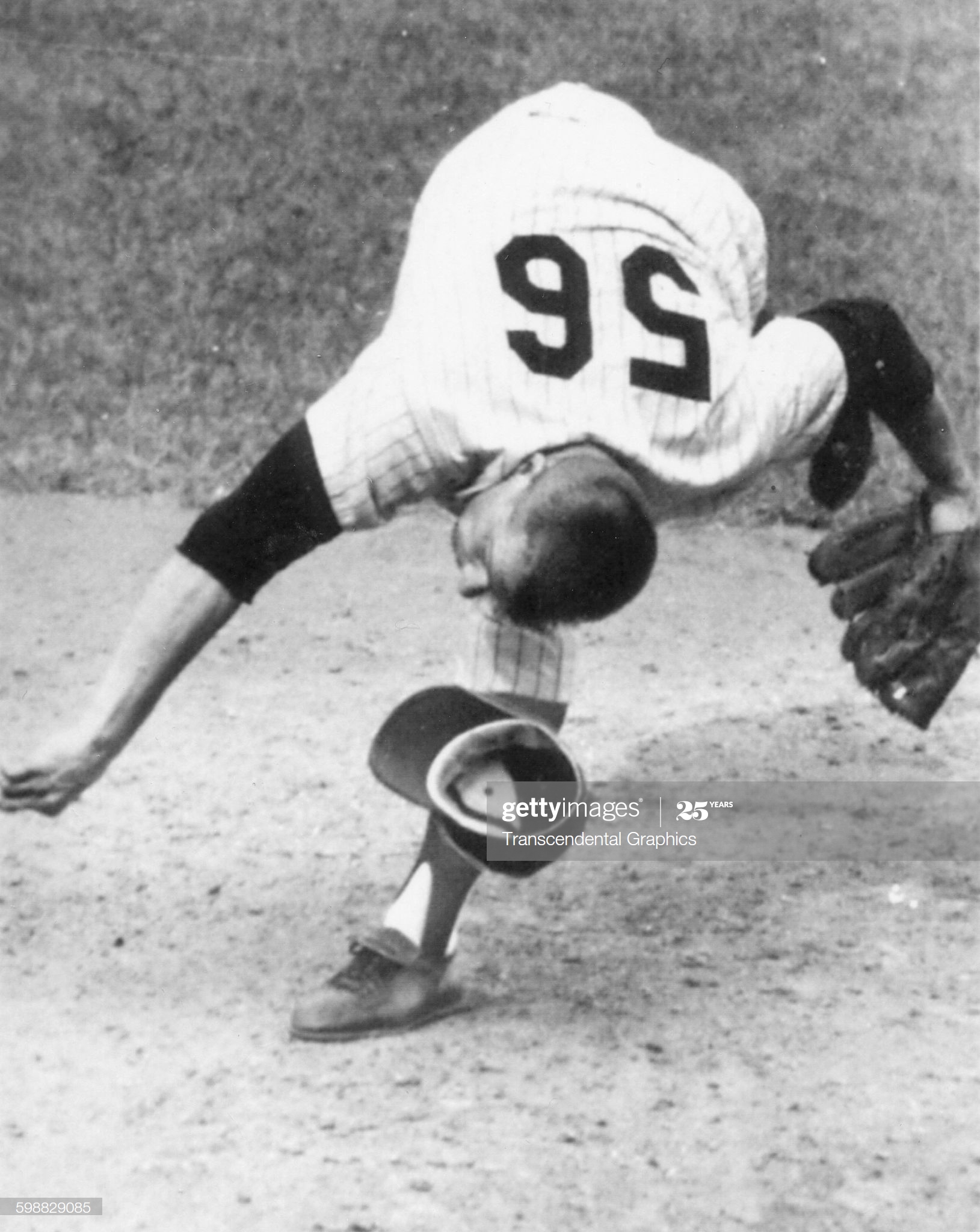
PM I couldn’t believe it. I mean he was doing it, like, come on, really? And he was trying to throw a knuckleball. I don’t think it was all that good.
JH When he threw a fastball, I can understand the hat flying off; but a knuckleball?
PM But again, maybe it was shtick, I don’t know. There’s another guy, you’re trying to make a comeback, you’re trying to get back to the — I want to get back in the game.
JH It was funny to see all the all the Reds guys with the pants and the stirrups the same length, and they show the Mavericks with hair and beards and raggedy-ass.
PM Oh yeah!
JH You could tell the “organization guys” compared to the “independent guys.” And Greg gets mad as hell just thinking about it, because – oh, he is not amused by Portland!
PM Oh yeah, oh yeah.
———————-
About Tom Seaver, as he battles dementia and has retired from public life:
JH It’s a shame, what happened to him.
PM It is, but when you talk to him, he’s in the moment. But the last time we were there, my wife and I went over to have lunch with them. We were out in California, and it was a couple of years ago. And you know, she just told us, “the sad thing is, he’s not gonna remember that you were here today.” And he was repeating himself, and he used to start taking notes.
She said he was over the Lyme Disease, because I guess it flared back up, is what 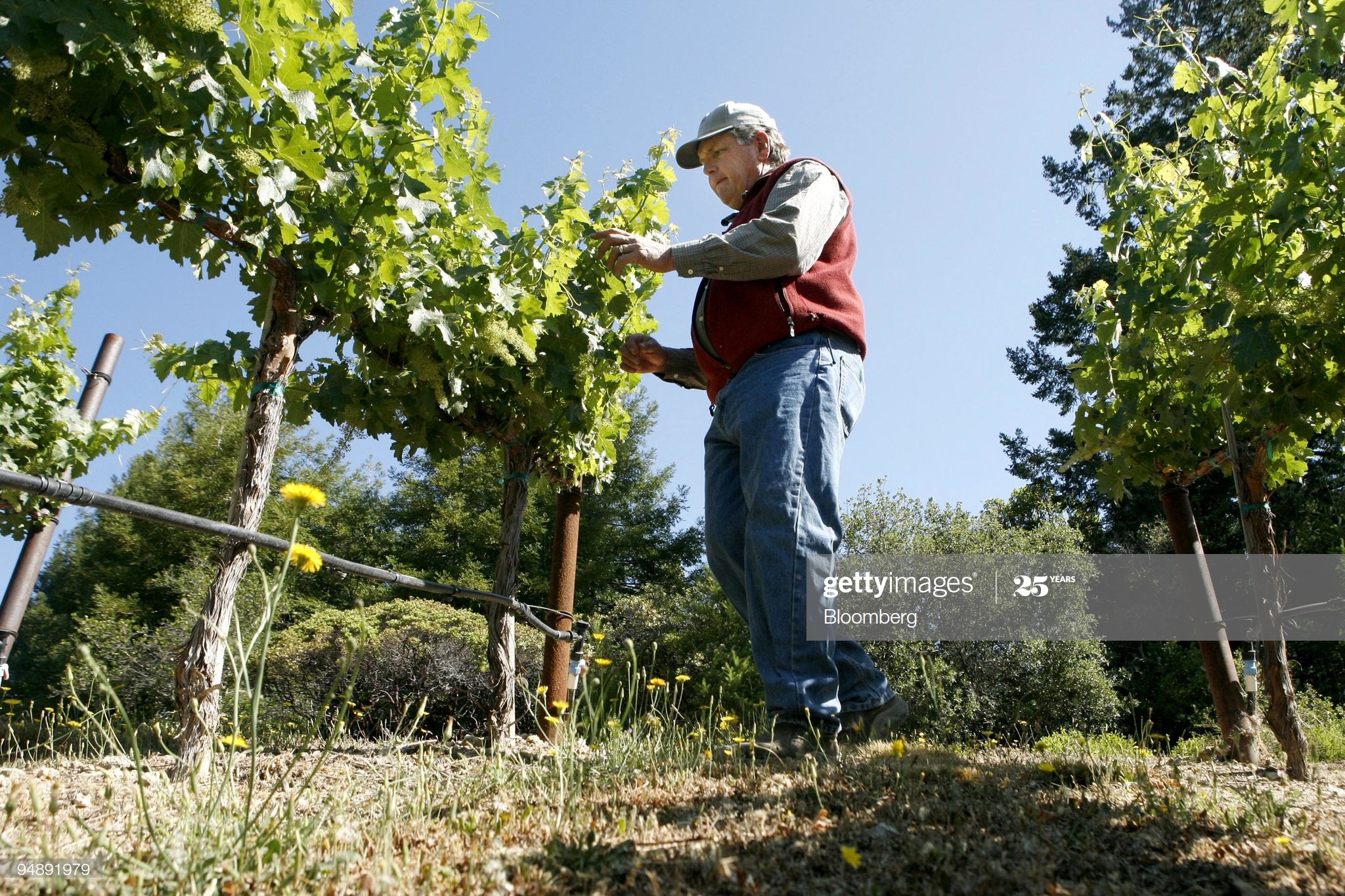 happened — how this whole thing got started a second time. He got Lyme Disease, I guess when he pitched for the Mets. And then it came back, and I don’t know if he was 65 at the time or something, but it came back in California.
happened — how this whole thing got started a second time. He got Lyme Disease, I guess when he pitched for the Mets. And then it came back, and I don’t know if he was 65 at the time or something, but it came back in California.
He was in great shape, great spirits, loved his vineyard, loved his dogs, loved his wife. One of his daughters [is] involved in the business. Got a niece who helps run the winery, the wine business.
He’s just got a fabulous place, and — your heroes, when things start happening to them, you just don’t want to see it. I guess that’s what it is.
JH And by all accounts, he worked his ass off out on that vineyard, too. He did a lot of physical labor. He thought that helped his health — helped him last as long as he has. He was really serious about it, and dedicated to it.
PM He didn’t ever do anything half-assed, right? He jumped in and saw that there was a challenge, and he accepted the challenge. He said, “Anybody can make wine. Very few people can make great wine. I want to make great wine.”
So they only had like three-and-a-half acres. And I said to him, “well, you could expand this; make it bigger.” He goes, “No, nope. I just want to make some great wine.” 300-400 cases or something, I guess is what they produce out of that vineyard. But the wine is just unbelievable. It’s so good.
JH I was on the mailing list for it, but I never actually bought any of it.
PM Yeah, the prices have kinda gone up. Last time I talked to him, I said, “Yeah, I got to go and get a small-business loan to buy some of your damn wines!” [laughs]
What really set him off, the first thing when I was talking to him about it was, the first couple of times I would say, “So how’s everything out there in the orchard?” Oh God. He just jumped right down my throat. Then I would say that just to get a rise out of him.
